Belfast football tournament integrating ethnic communities
- Published
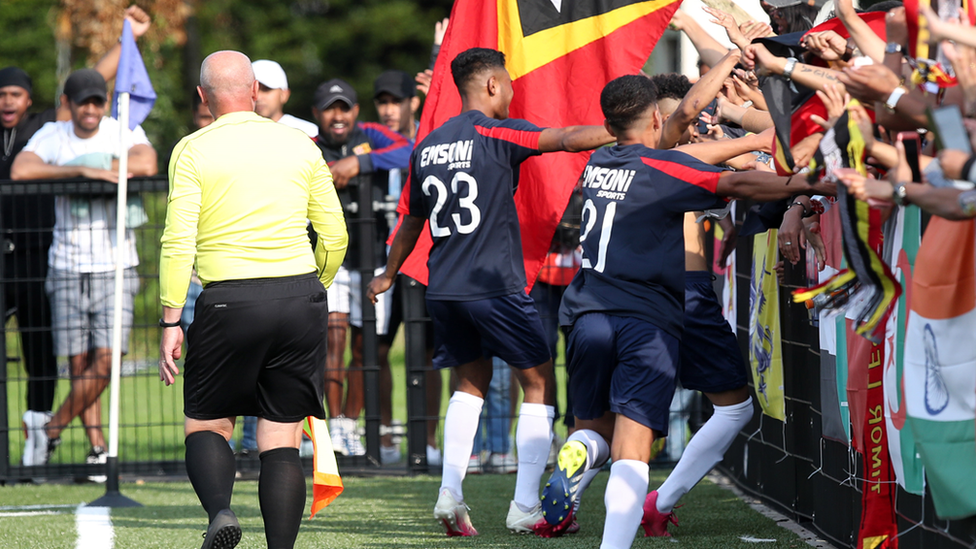
East Timor celebrate a goal in Saturday's final
While the Euros drew in tens of millions of viewers this summer, Northern Ireland has been hosting its own international football tournament.
For the last eight weeks, teams representing 15 nations have been taking part in the second Northern Ireland Confederation Cup.
Many of the players have come to Northern Ireland in recent years and made it their home.
Also competing has been a team from the homeless community and Limestone Utd, a cross-community team from the north Belfast interface.
The tournament has been organised by Ethnic Minority Sports Organisation NI (EMSONI) with the support of Rosario Youth Football Club.
It is the brainchild of EMSONI'S Adekanmi Abayomi, who says sport is the perfect vehicle for bringing people together.
"This is not only about football - this is about people coming together, having fun, knowing each other beyond sport, to know about their food, to know about their cultures, to know about their lives," he said.
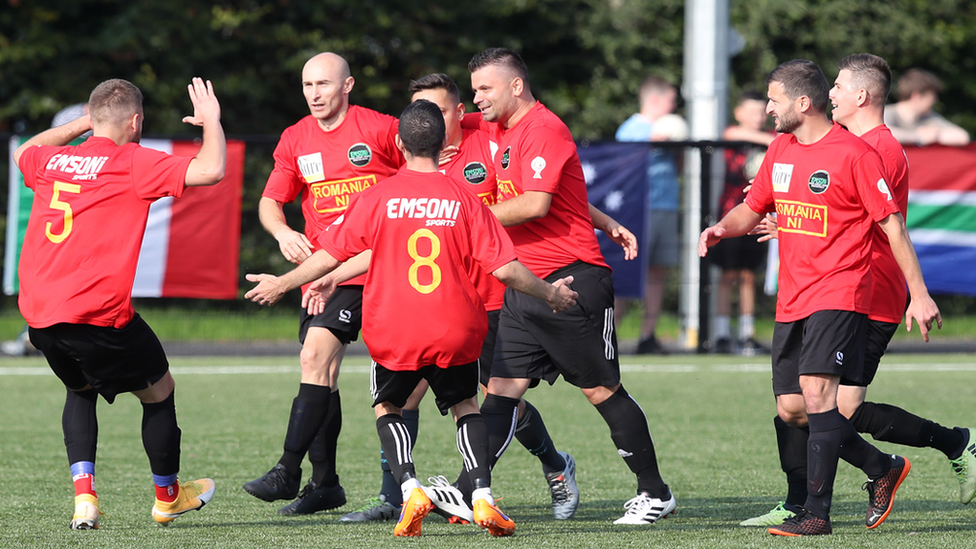
Romania celebrate one of their own in the exciting tournament finale
"It makes it easier for us to co-exist - it's always difficult to co-exist with people that you don't know.
"That is why sport is very important to create that platform to know each other, so that they can understand and know how to co-exist.
"Everybody appreciates their identity, but it's important for all of us to respect each other's identity and see how we can live together as partners, not rivals."
Saturday's final saw East Timor beat Romania 7-3 in front of an estimated 700 to 800 spectators.
Earlier Portugal beat Limestone Utd 6-1 in the third place play-off.
'All about integration'
Barbara Mageean, from Rosario Community Outreach Committee, said each team brought something special.
"Every team has brought with them their supporters, most teams have brought their own music - the Zimbabweans are particularly loud," she said.
"The East Timorese people were just incredible and the Romanian people, any time they play they just bring their own food and they walk around feeding people.
"And it's all about integration. It's up close and personal, so you have no choice but to mix with people."
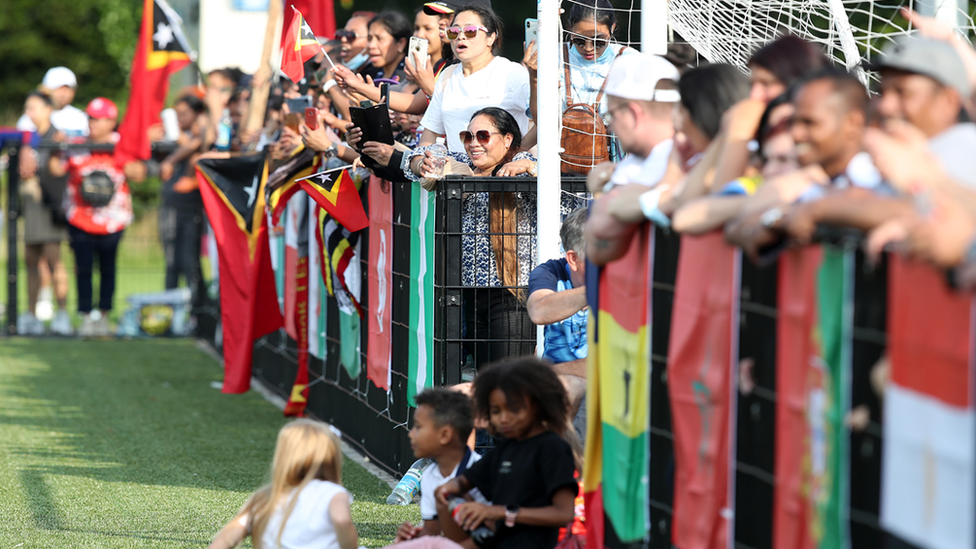
Hundreds of people attended Saturday's final
Adekanmi Abayomi said the result had been friendships built across communities.
"Teams that are already out of the tournament are now organising friendly matches among themselves," he said.
"That means they have exchanged contacts, that means that they are speaking with each other, that means they are doing stuff together.
"For them to be organising things on their own, having friendly matches, even after they are out of the competition, is amazing.
"That is the result, they begin to know each other, they begin to make friends."
The tournament was first staged in 2019, but could not take place last year because of the Covid pandemic.
Mr Adekanmi said the adverse impact Covid has had on everyone made this year's tournament even more important.
"We need to make people happy. The end point of what we are doing is we want people to be happy. When people are happy, society is happy," he said.
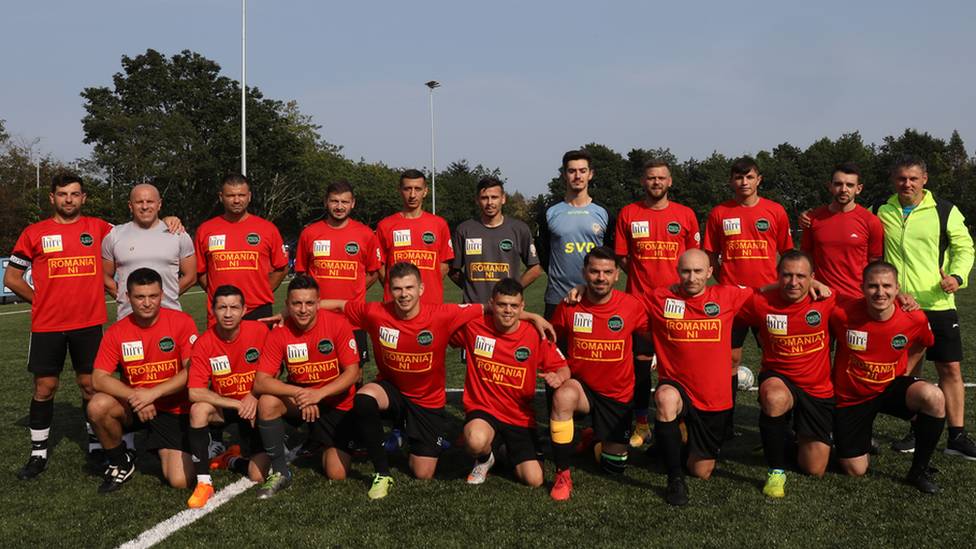
The Romanian team pose for a pre-match photo
"We have a lot of troubles all over the world, not just Northern Ireland. We need to create activities that will take people's minds away from sadness, from troubles and bring happiness back to their lives."
'Brilliant camaraderie'
The games are 11-a-side with Irish Football Association referees and assistants, played at Ulidia Playing Fields in south Belfast.
"It's as professional as they can make it a tournament," Barbara Mageean said.
"The football clubs should be having their scouts there to see these guys, some of them are incredible and the standard has been brilliant and the camaraderie has been brilliant.
"But just the ethos behind the whole idea - intercommunity, inter-racial, it's just 'let's forget about our differences, let's get on the football pitch and have fun' and it works a treat.
"In terms of just the society we live in, it's so refreshing."
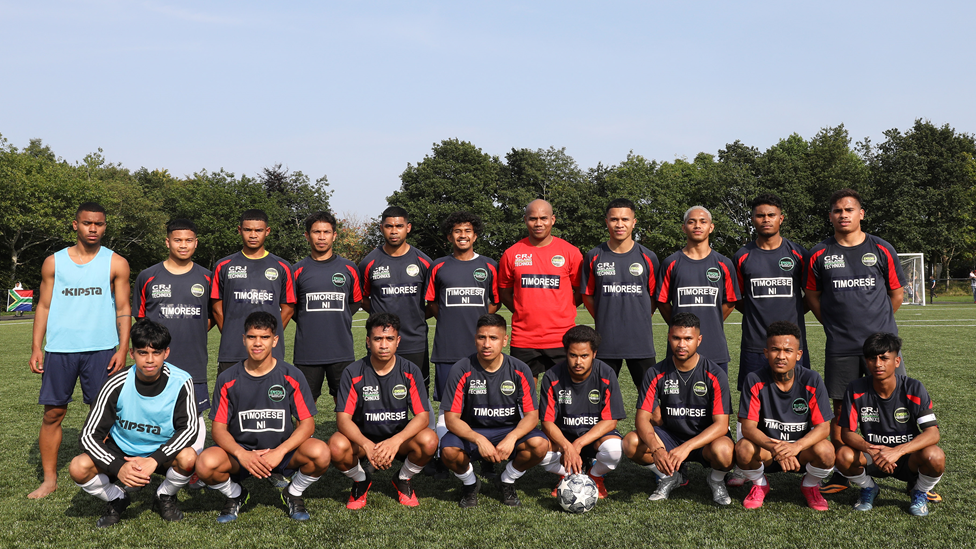
The Romanians took on East Timor
She said while the standard of football had been impressive, the support for the teams had been equally so.
"They're all so friendly, they're all so welcoming, they're all so proud of their nations and where they're from and they'll talk to you about it," she said.
"I got a lecture about East Timor - they're just pleased that you want to know."
The tournament is to become a regular event and Mr Adekanmi said teams have already been asking about next year.
"Next year will not be only 15 teams, we will definitely have more," he said.
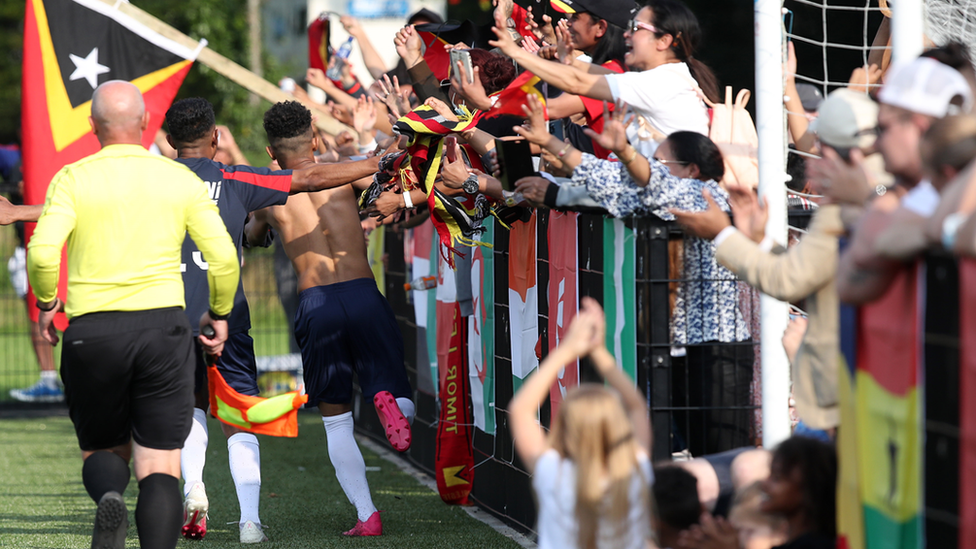
It's fair to say the East Timorese players and fans enjoyed this moment
"We have not even concluded this year's competition and we have four new teams showing interest for next year.
"We have a Greek team already showing interest, we have a Turkish team already showing interest, we have the Indians showing interest and we have the Pakistanis showing interest.
"So the project is getting bigger and that will tell you that communities need it."